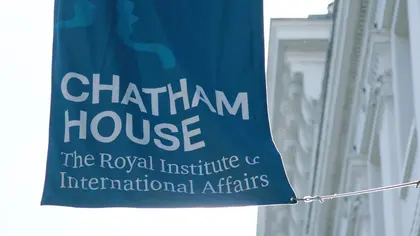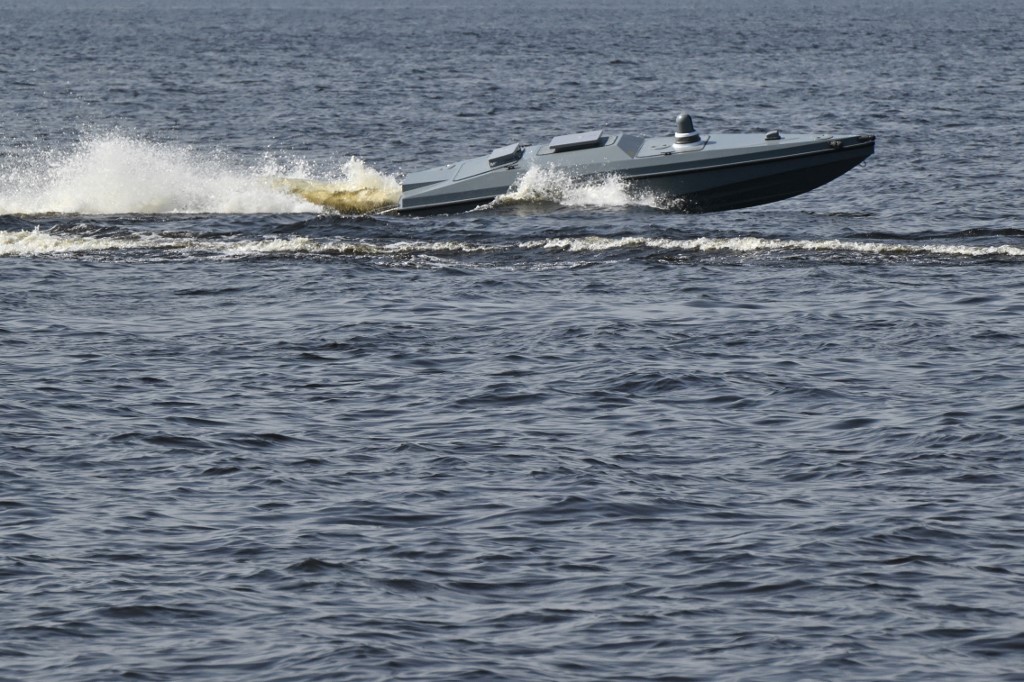President Vladimir Putin has successfully used Russia’s nuclear arsenal in Ukraine without ever having to set off a device, a top London-based security think tank said on Tuesday.
According to a new report from Chatham House, “Moscow’s constant rhetoric of nuclear intimidation has so far delivered success for Russia through deterring Western countries’ responses to Russian aggression and shielding it from the consequences of its actions in Ukraine."
JOIN US ON TELEGRAM
Follow our coverage of the war on the @Kyivpost_official.
One of the report's authors, Keir Giles said Russia's nuclear threats since Feb. 2023 are part of a Kremlin strategy to undermine western resolve to oppose Moscow aggression and to try to split NATO unity.
“The main tactic is for Russian to constantly remind western states that Russia’s nuclear arsenal is functional and dangerous and could theoretically be used at any time of Moscow’s choosing,” said Giles, who is the Senior Consulting Fellow of Chatham House’s Russia and Eurasia Program.
“Even though the corridor of uncertainty is far narrower than has been widely assumed, there remains a non-zero chance that Vladimir Putin may order a nuclear strike on Ukraine,” Giles said.
Over the past thirteen months there has been a yawning gap between what Moscow calls its “critical Russian national interests” and actual changes to the status of the Kremlin’s nuclear arsenal. However, unending public discussion about these weapons and how they might be used in Europe – no matter how frivolous – has served Russia well, by intimidating western policy makers and frightening western voters, the report said.

Poland Assumes Presidency of the Council of the European Union
“The threat of escalation, if ‘red lines’ are crossed, has successfully enabled Russia to obtain a ‘get out of jail free’ card for its actions in Ukraine to date,” Giles said. “If Russia is allowed to achieve success through nuclear intimidation, this validates the possibility of nuclear coercion, not only for Moscow, but for other aggressive, assertive or rogue states around the world.”
In a March 27 speech, Putin announced that Russia would, for the first time since the end of the Cold War, deploy nuclear weapons to neighboring Belarus. Andriy Yusov, spokesman for the Ukrainian army Main Administration of Intelligence, told Radio Liberty the move was “nuclear blackmail…and until the war is over in Ukraine, as long as (Ukrainian) territory is occupied, such blow-ups from Russia can definitely continue.”
The Chatham House report called for clearer and more robust statements of intent from the US and its allies, and “urgently” advised western leaders to convey to the Kremlin that the use of nuclear weapons would bring consequences that would be devastating, not just to Russia but to Putin personally.
The White House stated that President Joe Biden had, along with the heads of the Pentagon and the CIA had held direct conversations with their Russian counterparts in April. In those conversations, according to a spokesperson, they had told Kremlin leadership that American reaction, to Moscow’s use of a nuclear weapon in or around Ukraine, would be immediate and devastating to Russia.
You can also highlight the text and press Ctrl + Enter






